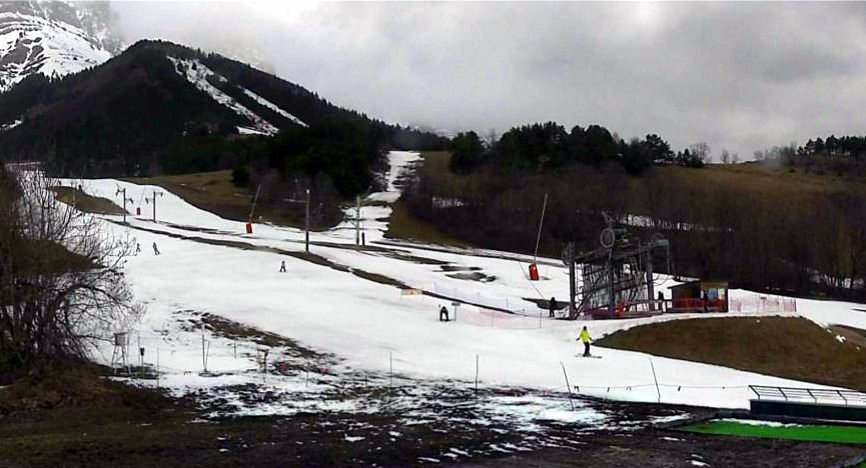It is mid February and the French winter holiday period should be in full swing but unseasonably warm weather is taking a toll on ski resorts in France’s lower and mid-mountain regions, raising concerns about the future of winter sports in these areas. In the Vercors Massif winter landscapes are looking increasingly green at altitudes between 1,000 and 1,300 meters. What was once a rare sight 10 to 15 years ago is becoming the norm, with snow melting rapidly due to persistent cloud cover, humidity, south-westerly air streams and a lack of overnight refreezing.
 Gresse en Vercors
Gresse en Vercors
Higher-altitude resorts are not immune to the trend. The Semnoz ski station in Haute-Savoie, located at 1,700 meters, is struggling with dwindling snowfall and economic challenges linked to climate change. Snow cannons, installed in 2017 to compensate for natural deficits, have had limited impact due to water restrictions and poor weather conditions. The southern sector of the ski area is hard to run.
 le Semnoz
le Semnoz
Local authorities in Annecy are reconsidering the future of the station in the next decade. "Investing in alpine skiing and new infrastructure no longer makes sense, we can't continue to finance a loss of 1.2 million euros per year" claims Frédérique Lardet, president of Grand Annecy, highlighting the financial burden of maintaining the resort. The idea of a "public ski service" is being explored, with a focus on making skiing more affordable while reducing economic losses. Some are calling for the ski area to change its objectives with a shift just towards ski instruction for children and diversification of activities to reduce reliance on snow-dependent tourism. Despite a cold Christmas period the Massif Central and Jura are also suffering from a third winter with little or no snow cover with resorts shuttered across the region. Even the half meter of snow that fell in the Ardeche last weekend soon melted.
As climate change accelerates, ski resorts in France’s lower mountain ranges face an uncertain future, with adaptation becoming increasingly necessary.